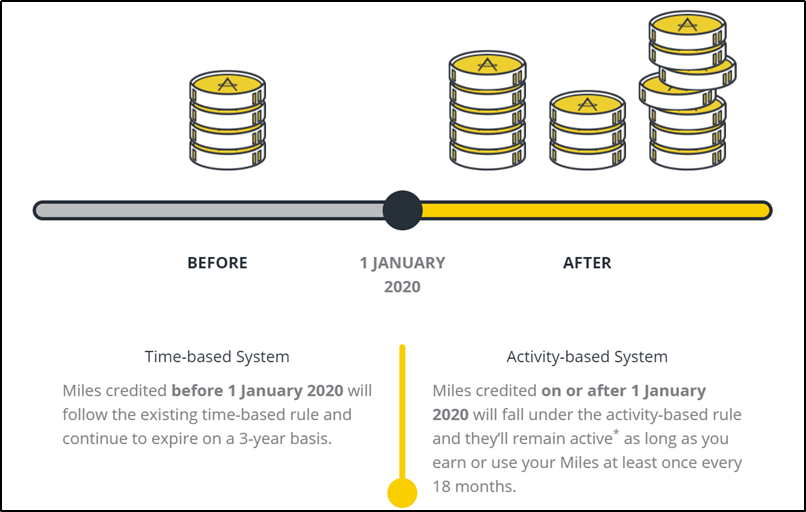If you collect Asia Miles, you’ll know that they’re valid for 3 years after accrual. You can extend them for a fee, but that just means you haven’t been properly monitoring your balance.
Well here’s some good news: Cathay Pacific is changing its Asia Miles expiry policy so that miles no longer expire when you earn or redeem at least one mile every 18 months.
How does the new expiry policy work?
Before you get too happy, keep in mind this doesn’t affect your existing stash of Asia Miles.
Miles earned before 1 January 2020 will follow the existing time-based rule and expire 3 years after they were credited. Miles earned on or after 1 January 2020 will follow the new activity-based rule, and remain valid as long as you earn or redeem at least one mile every 18 months.

Miles will be deducted on a first-in-first-out basis, so if you have miles falling under both the time-based and activity-based system, the time-based miles will be redeemed first.
Ways of earning Asia Miles in Singapore
For those of us based in Singapore, here are some ways of earning Asia Miles:
- Crediting a Cathay Pacific or partner airline flight to Asia Miles
- Credit card points transfers from American Express, Bank of China, Citibank, DBS, HSBC, Maybank, UOB
- Dining at selected restaurants in Singapore
- Transferring points from Esso Smiles
- Transferring NTUC LinkPoints from your Plus! card
- Shopping on RebateMango
- Shopping on the Asia Miles iShop
- Renting a car from major brands like Avis, Hertz, Europcar and Sixt
With the exception of credit card points transfers, all of the above methods do not involve conversion fees.
My take on time-based versus activity-based expiry policies
I’m a fan of activity-based expiry policies. In fact, in this post from 2018 I argued why KrisFlyer should adopt an activity-based expiry policy.
Not only does this give members more control over their miles and more time to save up for an aspirational award, it also encourages the adoption of cobrand cards. Direct crediting is an easy way of keeping miles alive, and time-based policies have the unintended consequence of penalizing cobrand cardholders (because their expiry countdown starts immediately upon crediting).
It’s not just members who benefit; airlines also gain from more touchpoints and greater engagement with marginal users. For example, if I know that earning even one Asia Mile can extend the validity of my entire balance, I’m more inclined to engage with the ecosystem on my next transaction.
You may recall that GrabRewards also adopted an activity-based expiry policy earlier this year, so it’s good to see loyalty programs wising up to the benefits of such an arrangement. One hopes that others (ahem *KrisFlyer* ahem) follow suit.
Conclusion
An important caveat to all this: frequent flyer programs can devalue with little notice (or none), and the longer you hold your miles, the more susceptible you are.
It’s one thing to be saving up miles for an aspirational redemption, but another to be holding for the sake of holding. Remember that the objective of the game is earn and burn. Activity-based expiry policies may give you more flexibility, but they’re not a license to hold on to your miles indefinitely.






